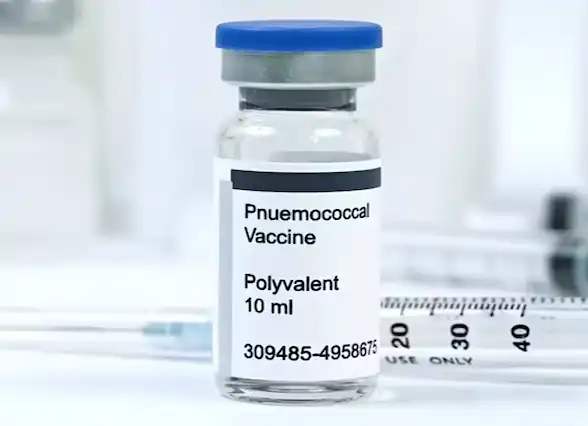Why the Pneumococcal Vaccine is Truly Important
The pneumococcal vaccination reduces the risk of pneumonia and its severity that can result in hospitalization or even death in older people.
Get insurance benefits, legal documents, and medical records in one place

Helpful Highlights
Pneumococcal disease is caused by bacteria and can result in a range of ailments, from mild ear infection to meningitis, sepsis, and fatal pneumonia.
The pneumococcal vaccine cannot give someone pneumonia and doesn't increase the risk of COVID-19.
Pneumococcal vaccination can keep your loved one from getting sick with pneumonia and has been shown to reduce the severity of illness in people who are vaccinated but still get sick.
Your loved one getting vaccinated may also protect others (you, other friends and family members, and especially children).
Pneumonia is more dangerous for older adults
Pneumonia affects individuals 65 or older much more than others, accounting for 65% of pneumonia-related hospitalizations. Pneumonia hospitalizes about 150,000 people in the US each year, killing 5% - 7%, or between 7,500 and 10,500 people. The death rate is even higher among adults aged 65 years and older and people with underlying health conditions. Fewer adults get pneumococcal meningitis or bloodstream infection, but the mortality rate for these infections is higher, even with proper treatment. Pneumococcal meningitis kills about 1 in 6 older patients and blood infection kills about 1 in 8 adults who have these diseases.
Older adults are more susceptible to pneumonia and its complications for several reasons, namely because the immune system weakens as we age and older adults are more likely to have other health conditions that increase their risk of complications from pneumonia.
Pneumonia is a sneaky character, generally coming in behind the open door another illness creates. For example, while an older adult's body is busy fighting off the flu, or they struggle with exacerbations of advancing lung disease like COPD, they might pick up pneumonia as a secondary infection.
Older adults are also more susceptible to pneumonia because of the higher prevalence of conditions like aspiration, shallow breathing, and ineffective cough (not strong enough to clear gunk from the airways) among this population.
Pneumococcal vaccination
Vaccination remains the primary preventive strategy in the elderly against Streptococcus pneumoniae (S.pneumoniae).
The CDC recommends routine administration of the pneumococcal conjugate vaccine (PCV15 or PCV20) for all adults aged 65 years or older who have never received it or whose previous vaccination history is unknown.
Pneumococcal vaccination is the best way to prevent pneumococcal disease in your loved one. Even if your loved one does get sick with pneumonia, the vaccination can make their illness less severe. Pneumococcal vaccination can:
Shorten the length of a pneumonia hospital stay.
Reduce the chances of respiratory distress and collapse.
Reduce the risk of ICU admission from pneumonia.
Reduce the risk of death from pneumonia.
Chronic medical conditions also increase the risk of pneumonia complications. Anyone with a chronic medical condition should get vaccinated, especially those living in nursing homes or other long-term care facilities. Examples of chronic conditions that can worsen pneumonia complications are:
Lung disease (like asthma or COPD)
Heart disease
Diabetes
Chronic kidney disease (CKD)
Liver disease
Brain or nervous system conditions
HIV or other immunocompromising conditions
Cancer or cancer treatment
Obesity
Low mobility or sedentary lifestyle
Pneumococcal vaccination myth
The pneumococcal vaccine cannot give someone pneumonia or any other pneumococcal disease. It also does not increase the risk of COVID-19. The development of pneumonia-like symptoms following vaccination can happen for a few reasons:
The person is already sick with pneumonia (or other illness) but not showing symptoms
Vaccination reaction
Coincidence - catching pneumonia before the vaccine takes full effect (about 2 weeks from injection)
Catching other illnesses that look like pneumonia but aren't
Coverage
Medicare and Medicare Advantage will pay for the pneumococcal vaccine, as will many private insurance plans. Your loved one can get the vaccine at their provider's office, their local health department, and many pharmacies. Pneumococcal vaccines may also be available at other community locations, such as schools, religious centers, and workplaces.
RESOURCES
Assaad, U., El-Masri, I., Porhomayon, J., & El-Solh A.A. (2012). Pneumonia immunization in older adults: Review of vaccine effectiveness and strategies. Clinical Interventions in Aging, 7, 453-461. DOI
CDC - Pneumococcal Vaccine Recommendations
CDC - Summary of Who and When to Vaccinate
CDC - Pneumococcal Disease in Adults and the Vaccines to Prevent It
CDC - Pneumonia Can be Prevented - Immunizations Can Help
National Committee for Quality Assurance (NCQA)
National Foundation for Infectious Diseases
National Institute of Allergy and Infectious Diseases. (2014). Pneumococcal disease.
No content in this app, regardless of date, should ever be used as a substitute for direct medical advice from your doctor or other qualified clinician.
Get more support and guidance on insurance benefits, medical records and legal forms.
Helpful brings together your insurance benefits, legal documents, and medical records in one personalized place — so you always know what you have, and never have to search again.

Technology for Health Tasks. Mental Health for the Tough Stuff.
Helpful connects your medical records, insurance, and caregiving tasks automatically. And when you need more than logistics, a therapist is here to guide you.
In-Network and Covered
For Individuals, Couples and Families
HIPAA Compliant, Data Stays Private


Healthcare Tasks Simplified

From syncing records to spotting drug interactions, Helpful does the heavy lifting, turning complex health info into clear tasks and showing you benefits you can actually use, giving you clarity and control over your care.

In-Network Mental Health

Our licensed therapists are here to support you and your loved ones through stress, burnout, and life’s hardest moments, with an inclusive, compassionate approach that works with most insurance plans.

Create Legal Documents

Plan ahead by creating will, trusts, advance directives and more, that ensure your wishes are honored in the event you can’t speak for yourself -with Helpful guiding you every step of the way.